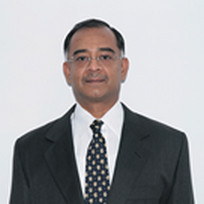Texprocil View on the Union Budget July 2014 With Regards to Cotton Textiles
Shri Manikam Ramaswami, Chairman, Texprocil (The Cotton Textiles Export Promotion Council), welcomed the various announcements and stated the budget in general is a positive budget. There are several new ideas together with continuity. Focus on poverty reduction, agriculture etc will help the poor have more disposable income which is essential for the textile industry.
Focus on agriculture and organic cultivation and urban waste conversion into organic manure will further strengthen India’s pre-eminent position as the world’s largest organic textile producer. Logistics cost reduction, moving cargo over rail and water which are far more efficient than moving it over roads will reduce costs as textile manufacturing has a high logistics cost component. Cheap loans to rural self help groups will rebate distributed garment manufacturing capacities which together with deeper penetration of e-business make ready-to-wear garments highly affordable and spur consumption.
Shri Ramaswami also welcomed the removal of service tax on loading, unloading, storage, warehousing and transportation of cotton whether ginned or baled. Another positive step in the budget is that handlooms have at last been identified as a handicraft. Also, 6 clusters in areas where handloom weavers are artisans making heritage textiles are to be set up with integrated skill development and training facilities.
However, Shri Ramaswami opined that the introduction of excise duty on polyester produced from waste is a serious retrograde step. Recycling of waste plastics and pet bottles into fiber helps waste realize a high enough price to encourage separation of this dangerous non-biodegradable waste from biodegradable digestable waste. The high price of the waste makes this expensive segregation of waste a viable activity. Levying excise duty on the fibers produced will increase crude consumption and reduce waste segregation activity which is detrimental to the environment. These retrograde steps of creating inverted duties and not reducing existing inverted duties need to be done away with at the earliest.
Texprocil facilitates the exports from India of raw cotton, cotton yarns and blended yarns, woven and knitted fabrics, home textiles and technical textiles. The Council provides export promotional services to over 3,500 members including composite mills, spinning units, weaving units, knitting units, process houses and merchant exporters.
The Cotton Textiles Export Promotion Council
Engineering Centre, 5th Floor, 9 Mathew Road, Mumbai 400 004
Telephone : (022) 2363 2910 to 13 Fax : (022) 2363 2914
Email : [email protected] Website : www.texprocil.org.in






